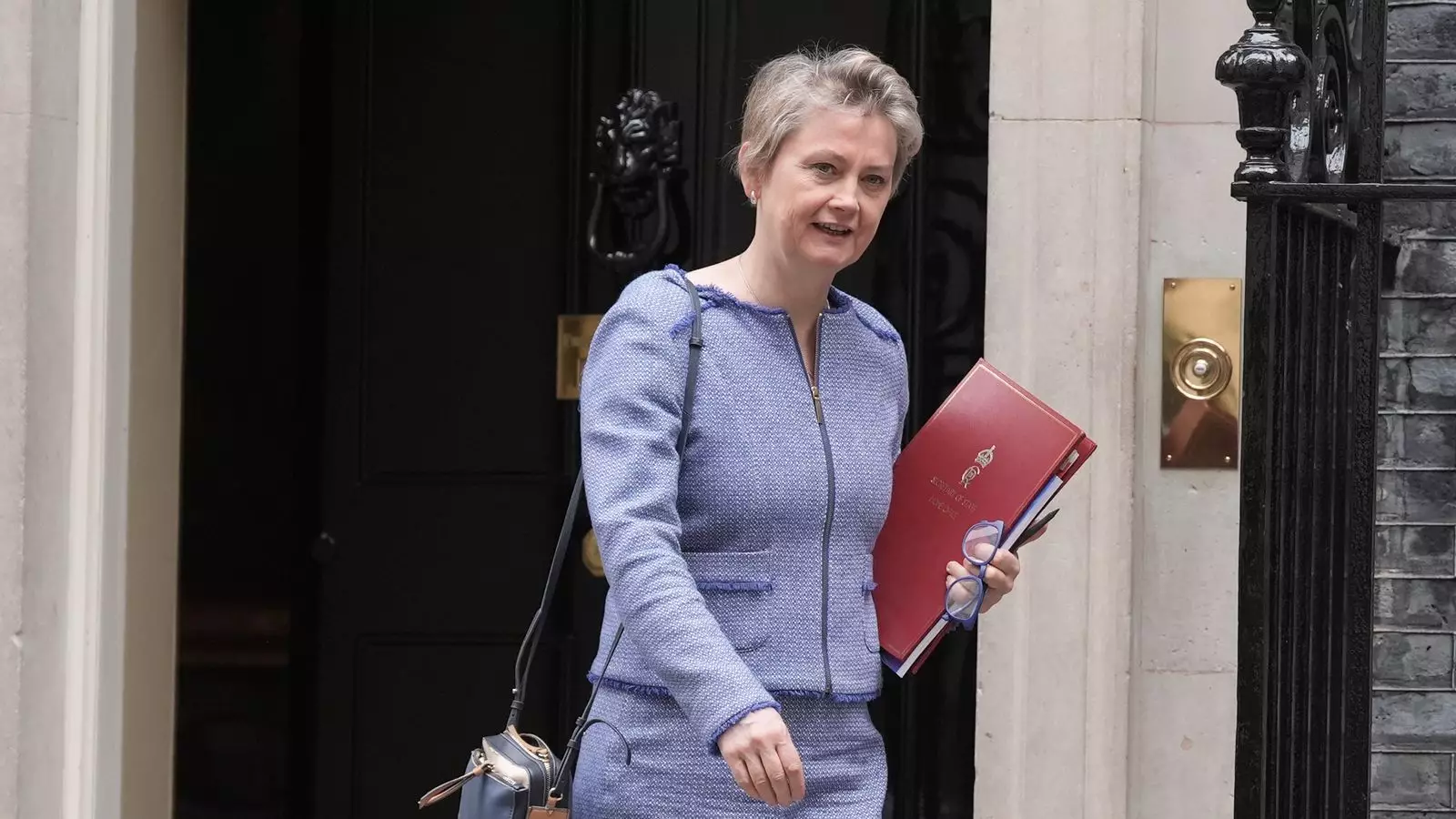The UK government’s latest attempt to tackle the relentless migration crisis through the “one in, one out” scheme appears tantalizingly promising but ultimately woefully incomplete. Despite the enthusiastic announcements from home secretary Yvette Cooper and French President Emmanuel Macron, critical details remain unresolved. The absence of definitive numbers on how many migrants will be deported or accepted highlights a shallow commitment to meaningful reform. This lack of clarity, particularly around the implementation of the pilot program, signals a dangerous willingness to prioritize political optics over pragmatic policy. It suggests that the government recognizes the severity of the crisis but lacks the backbone or strategic clarity to implement comprehensive, fair solutions.
The pilot’s open-ended nature—without fixed quotas—raises serious questions about its long-term viability and sincerity. If the number of returns is uncertain, how can we evaluate its success? How can the affected communities, both in the UK and France, have confidence that this plan will actually alleviate migratory pressures? Such ambiguity serves as a smokescreen, allowing policymakers to project progress without any tangible accountability. This cavalier attitude is a sign of superficial engagement with a complex problem, one that warrants transparency and decisive action, not half measures.
Strategic Failings and the Illusion of Control
The intellectually honest critique of this initiative centers on its lack of strategic coherence. The deal hinges on a notion that returning migrants will somehow dissuade future crossings; however, punitive measures alone tend to be ineffective without addressing the root causes of migration—conflict, poverty, and climate change. The “one for one” principle sounds equitable in theory, but it overlooks the actual motivations driving desperate individuals to risk their lives on treacherous crossings.
Furthermore, the claim that Brexit is responsible for rising small boat crossings epitomizes political scapegoating rather than a solutions-oriented approach. Macron’s assertion that the UK’s departure from the EU deprived it of a migration deal is partly true but oversimplifies the intricate web of factors fueling migration. This blame game dodges the pressing need for a broader, more humane framework for managing migration—one that recognizes global inequalities and supports refugee protection rather than punishing vulnerable people. The government’s failure to pursue such holistic strategies signals a lack of courage in confronting uncomfortable realities and a preference for short-term political wins.
Legal and Diplomatic Challenges Are the Real Obstacles
The British government’s acknowledgment of ongoing legal hurdles and the need for “robust” frameworks reveals underlying weaknesses in their approach. If the legal landscape remains uncertain—and it does—then any agreement, no matter how well-intentioned, risks being invalidated or obstructed by courts or international bodies. This hesitation underscores the fragility of the current strategy, which is less about effective migration management and more about managing legal and diplomatic exposure.
Additionally, the government’s efforts to involve the EU’s 27 member states and EU institutions suggest an implicit recognition that unilateral action is insufficient. Nevertheless, the continued fallout from Brexit complicates these diplomatic efforts, creating a strained environment where cooperation is hindered by political posturing. Such circumstances khiến the “one in, one out” deal seem more like a gambit than a sustainable solution. If anything, this approach illustrates the wider failure of the UK’s post-Brexit migration policies, which often prioritize control over compassion and legal clarity.
Realistic Solutions Require Courage, Not Cliches
What’s painfully absent from the current discourse is a genuine, comprehensive strategy to address migration that balances national interests with human rights. Promising to “trial” the policy without firm targets feels like a political band-aid rather than meaningful reform. Effective migration management demands courage—courage to overhaul legal frameworks, invest in international aid, and work collaboratively with the EU and origin countries to stem the root causes.
Sadly, the UK’s policy proposals reflect a pattern of reactive policymaking—an overreliance on slogans rather than substantive solutions. “One in, one out” sounds catchy, but it’s ultimately hollow if it fails to address systemic issues or deliver tangible results. A truly successful approach must be rooted in honesty, legal robustness, and international partnership. Until such honesty and structural overhaul occur, this plan is doomed to be yet another empty gesture, offering false hope to migrants and frustrated citizens alike.



Leave a Reply